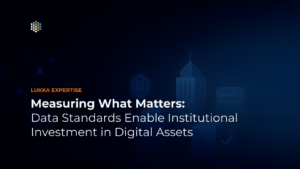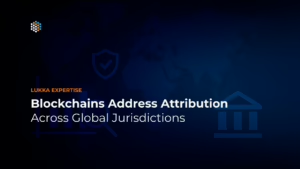
Author: Andrea S. Kramer, McDermott Will & Emery*
The statements in this document reflect guidance issued as of March 19, 2020.
Some virtual currency units and positions are treated as commodities for U.S. commodity regulatory purposes by both the CFTC and the courts. This raises the question of whether the IRS might follow the CFTC’s lead and treat certain virtual currency units or positions as commodities for tax purposes and, if so, on what basis? The answer to this question is important because treating a virtual currency as a commodity for tax purposes could significantly affect its tax treatment. At the date of this Memorandum, IRS Notice 2014-211 and the 2019 Frequently Questions (FAQs)2 tell us that the IRS views convertible virtual currency as property, not foreign currency, for federal tax purposes.3 We have no Treasury or IRS guidance as to whether virtual currency might be taxed as a commodity. This Memorandum addresses whether virtual currency and positions might be taxed as commodities.4
Definitions of Commodities
When considering whether property is a commodity for tax purposes, the IRS has deferred to the CFTC in considering what constitutes a “commodity.”5 The CFTC gets its regulatory authority from the Commodities Exchange Act (CEA), and the CEA defines a commodity quite broadly to include certain enumerated agricultural commodities, “all other goods and articles,” and “all other services, rights, and interests. . . in which contracts for future delivery are presently or in the future dealt in.”6 Based on this broad definition, the CFTC has already asserted jurisdiction over certain—but not all—virtual currency transactions.7
We can also look at the Internal Revenue Code provisions that refer to or define commodities. For example, there is a trading safe harbor provided for certain foreign investors in the U.S. commodity markets.8 For the trading safe harbor, commodities are defined as being “of a kind customarily dealt in on an organized commodity exchange” where transactions of its kind are “customarily consummated at such place.”9 In Rev. Rul. 73-158, the IRS applied the trading safe harbor to off-exchange sales of raw sugar,10 ruling that the term commodities is used in its ordinary financial sense. The IRS said that commodities include all products that are traded and listed on U.S. commodity exchanges, including actual commodities and commodity futures contracts.
The term commodity is defined even more broadly than it is for the trading safe harbor in the Code provision that allows commodity dealers and traders to elect into mark-to-market. The trader election into mark-to-market defines commodity to include any commodity that is actively traded for purposes of the tax straddle rules,11 including, physical commodities, derivative instruments in any commodity, and evidences of interests in any commodity. Evidences of interests include any option, forward, contract, futures contract, short position, or any similar instrument in a commodity. 12 The term commodity also includes a position that is not itself a commodity if the position serves as a hedge of a commodity.
Virtual Currency
It appears likely that some virtual currency units and positions will be treated as commodities for tax purposes.13 The way in which a commodity is defined for CFTC regulatory purposes is likely to serve as the guide for the tax definition for some Code provisions. As a result, those virtual currencies that are treated as commodities by the CFTC are likely to be treated as commodities for tax purposes.
Taxpayers should discuss their virtual currency positions with their tax advisors to determine whether any of the Code provisions that apply to commodities might be applied to their transactions.14 Taxpayers should be aware of the possibility that some virtual currency units and positions are likely to be treated as commodities for tax purposes.
* This material is for general information purposes only and should not be construed as legal advice or any other advice on any specific facts or circumstances. No one should act or refrain from acting based upon any information herein without seeking professional legal advice. McDermott Will & Emery makes no warranties, representations, or claims of any kind concerning the content herein. McDermott and Andrea S. Kramer expressly disclaim all liability to any person in respect of the consequences of anything done or not done in reliance upon the use of contents included herein. For a complete list of McDermott entities, visit mwe.com/legalnotices.
©2020 McDermott Will & Emery. All rights reserved. Any use of these materials including reproduction, modification, distribution or republication, except as part of the Lukka Library is strictly prohibited without the prior written consent of McDermott. This material may be considered attorney advertising. Prior results do not guarantee a similar outcome.
1 Notice 2014-21, 2014-16 I.R.B. 938.
2 2019 Frequently Asked Questions.
3 Notice 2014-21, Q&As 1 and 2. 2019 FAQs.
4 For a discussion of whether virtual currency positions can be treated as securities for tax purposes, see McDermott’s Memorandum, “Can a Virtual Currency Positon be Treated as a Security for Tax Purposes?”
5 New York State Bar Association Tax Section, “Report on the Taxation of Cryptocurrency,” January 26, 2020.
6 CEA § 1a(4)
7 CFTC Press Release, “CFTC Staff Issues Customer Advisory on Digital Tokens,” July 16, 2018, https://www.cftc.gov/PressRoom/PressReleases/7756-18; CFTC, “Customer Advisory: Use Caution When Buying Digital Coins or Tokens.”
8 1973-1 C.B. 337.
9 I.R.C. § 864(b)(2)(B)(iii).
10 Rev. Rul. 73-158, 1973-1 C.B. 337.
11 I.R.C. § 475(c)(2)(A). Treas. Reg. § 1.1092(d)-l(c)(1) provides that the actively traded standard requires an established financial market, ranging from an interdealer market to an established financial market.
12 I.R.C. § 475(e)(2).
13 Compare Treas. Reg. § 1.6045-1(a)(5) (limiting the definition of commodity to property in which futures have been “approved” for trading by the CFTC). There is a question as to whether futures that are traded pursuant to the CFTC’s self certification process meet this definition. There is also a question as to whether futures contracts need to trade on a product at all for the product to be treated as a commodity for CFTC purposes.
14 For a discussion of some of the Code provisions that apply to commodities, see McDermott’s Memoranda:
- “When Virtual Currency Positions Are Subject to the Straddle Rules”
- “When Can Bitcoin Positions Be Taxes as Mixed Straddles Subject to the Special Mixed Straddle Rules” • Can Virtual Currency Traders Elect into Special Rules that Allow Current Deductions for Trading Losses?



